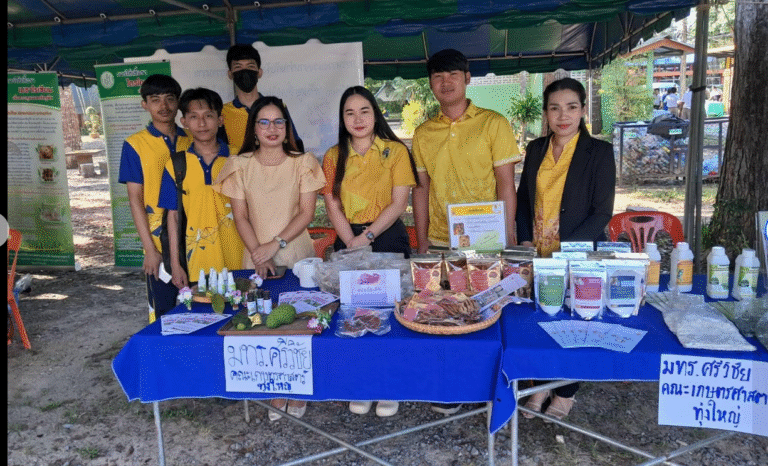Reporters: Dr. Wichulada Thavaroj, Ms. Panyaras Luekhajon, Mrs. Rungtip Wuttanaworakit, Asst. Prof. Noppadon Podkumnerd, Asst. Prof. Jasada Romyen ,Mr. Jessada Montralak
Evidence Date: during 2023 Jan-Dec
Related SDGs:

Related Indicators: 2.1.1, 2.1.2
Details:
The students from the Faculty of Agriculture, RUTS (Thong Yai campus) have embarked on an innovative project to repurpose food waste, transforming it into a valuable resource. They collect discarded food, which would otherwise contribute to landfill waste, and use it as feed for raising worms. This process not only helps in managing waste but also contributes to sustainable agricultural practices. The larvae used for digesting organic waste are known as BSF larvae or Black Soldier Fly larvae. During their larval stage, these little creatures focus on eating and consuming as much as possible to build up energy throughout their lives. This means they require a significant amount of food. This relationship creates a mutual benefit: the larvae need food to grow, while humans have food scraps that need disposal. By utilizing these scraps, we can prevent them from contributing to general waste and environmental issues. This collaboration not only aids in waste management but also helps address global environmental challenges. Together, we can create a more sustainable system. Additionally, the larvae are fed to chickens, creating a closed-loop system that maximizes resource efficiency. The chickens, in turn, provide a protein source for students and university staff. This initiative not only meets the nutritional needs of the campus community but also allows students to gain practical experience in sustainable farming methods.
Furthermore, the surplus chicken meat is sold to the local community, creating an additional revenue stream for the students. This entrepreneurial approach not only supports the university’s sustainability goals but also equips students with valuable skills in food production and business management, fostering a sense of community and environmental responsibility. Therefore, this project exemplifies how innovative thinking can turn waste into a source of sustenance and income.
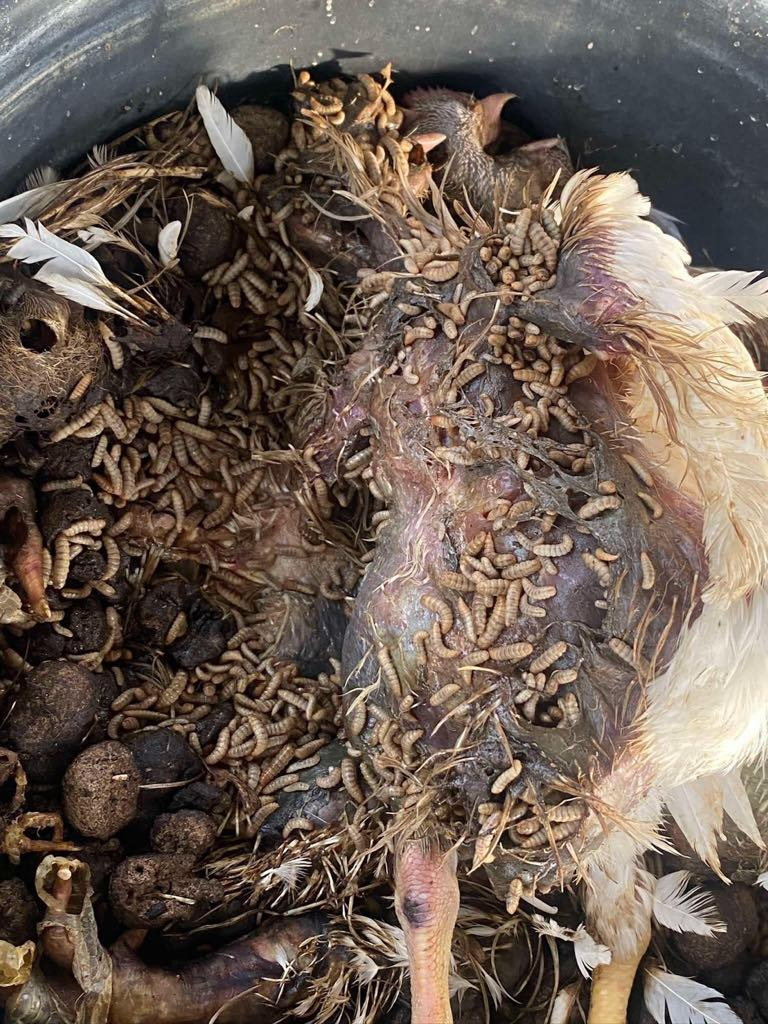
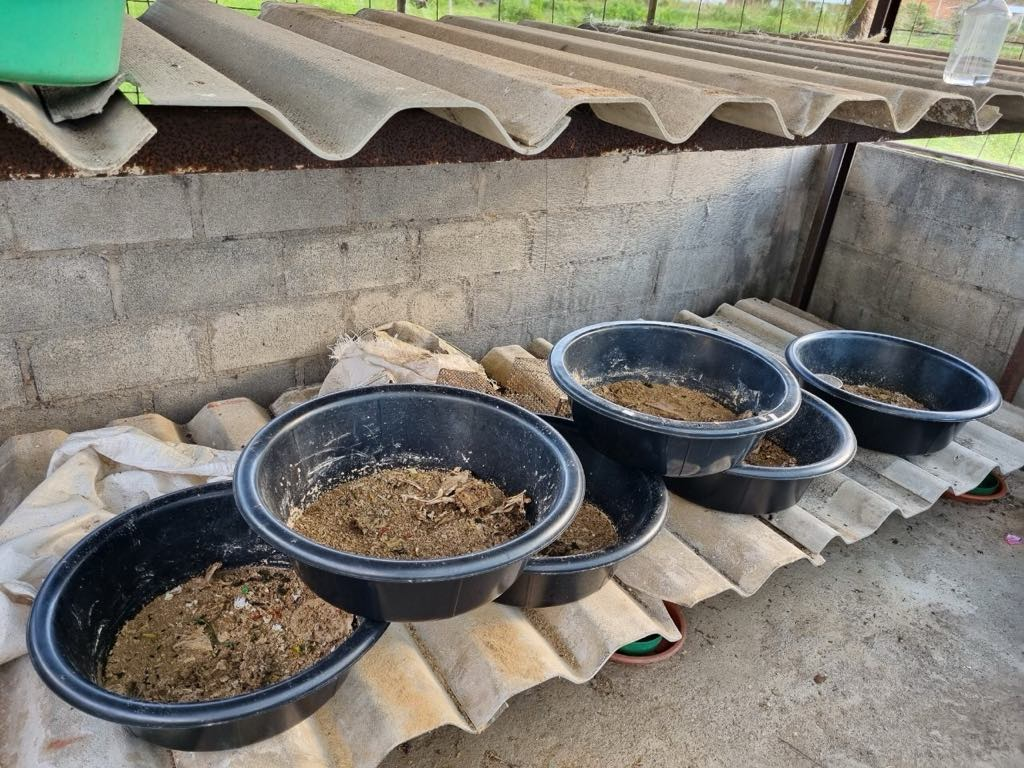
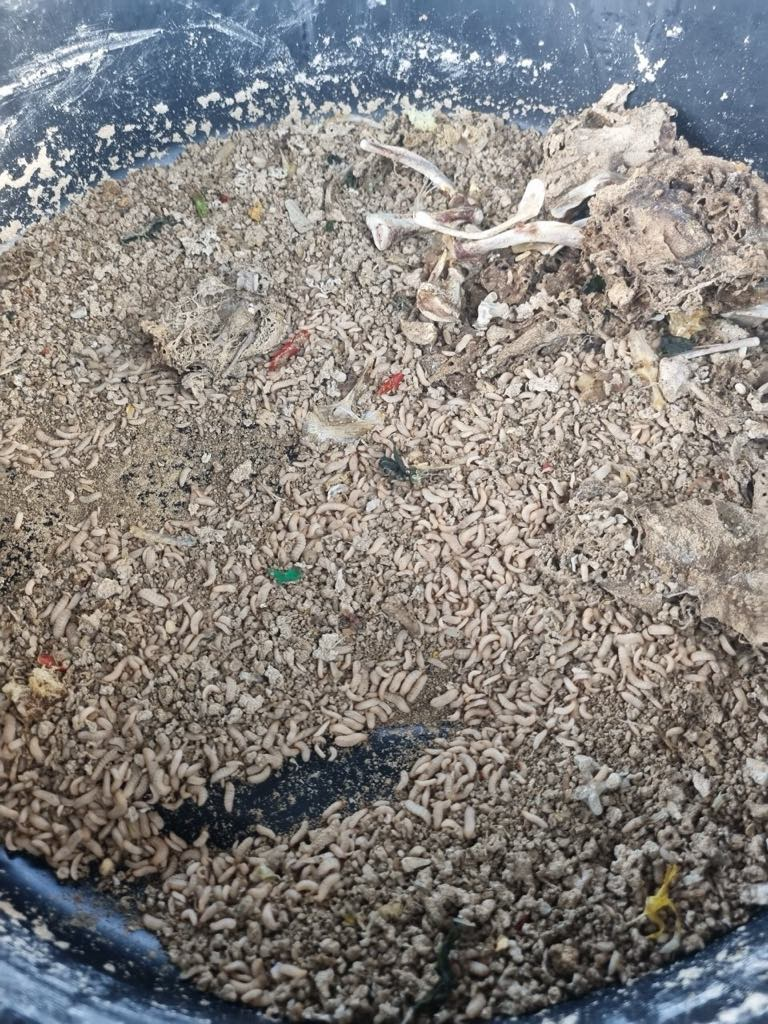
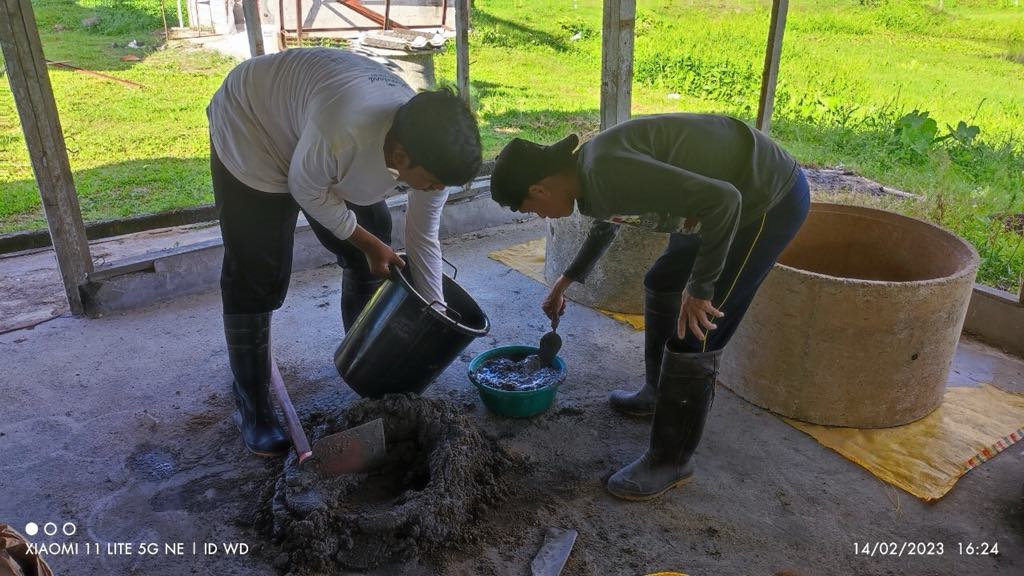
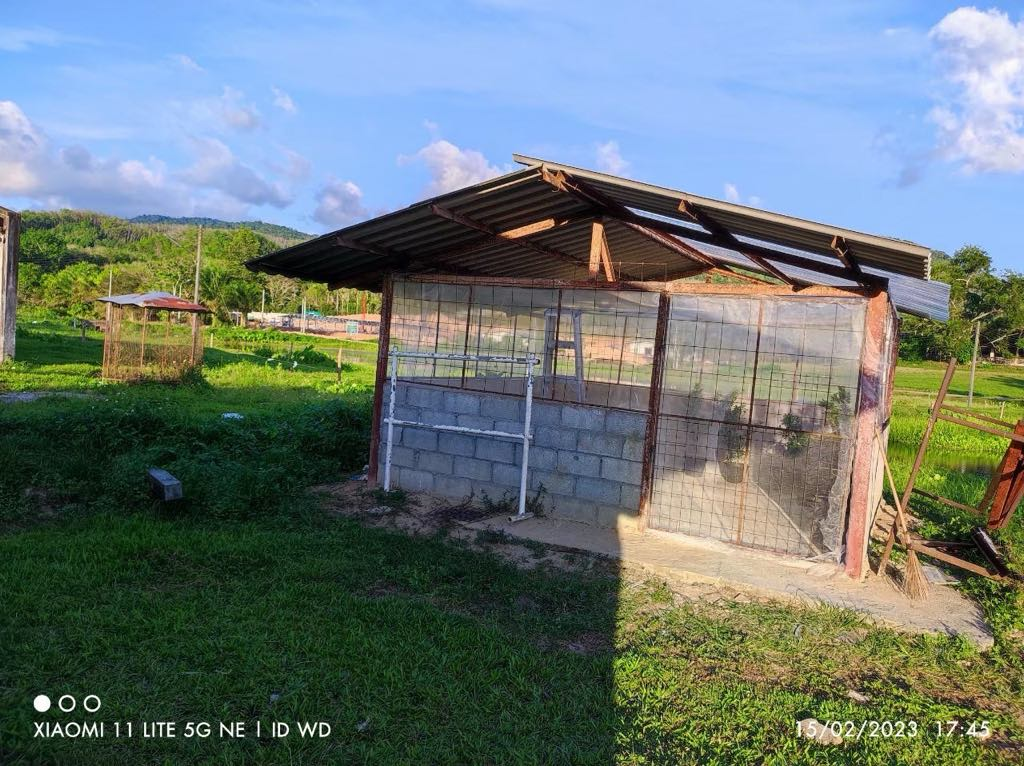
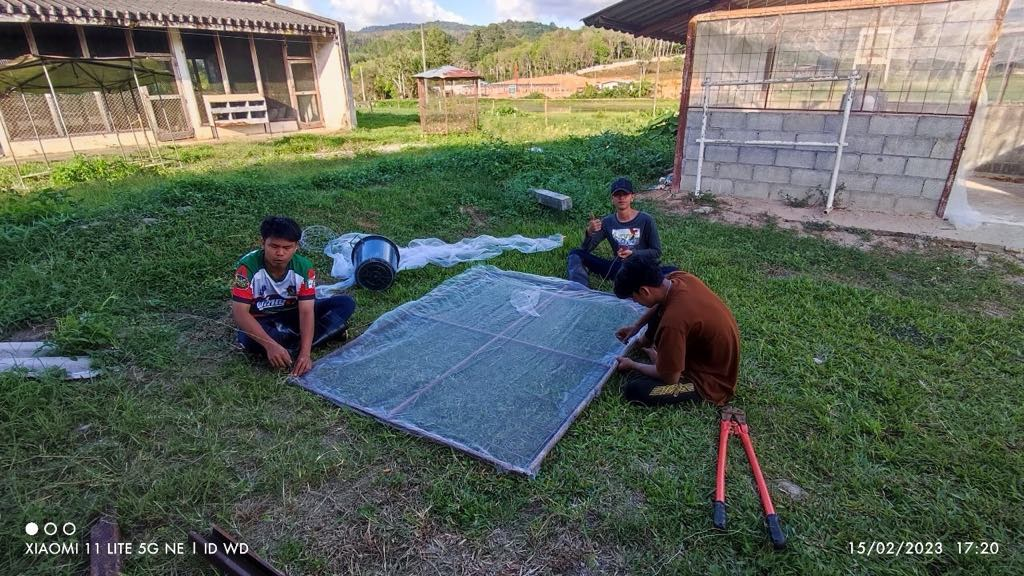
Related Links:
https://www.facebook.com/watch/?mibextid=WC7FNe&v=646528510942079&rdid=nQNSVcrUsWXiY8dp



